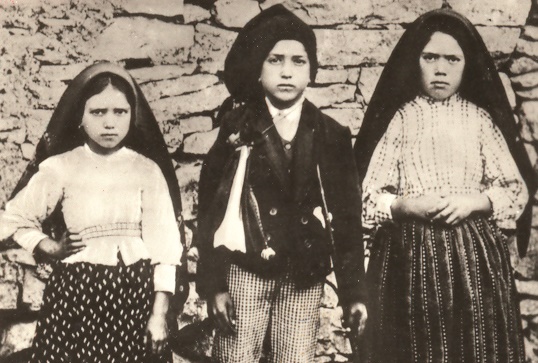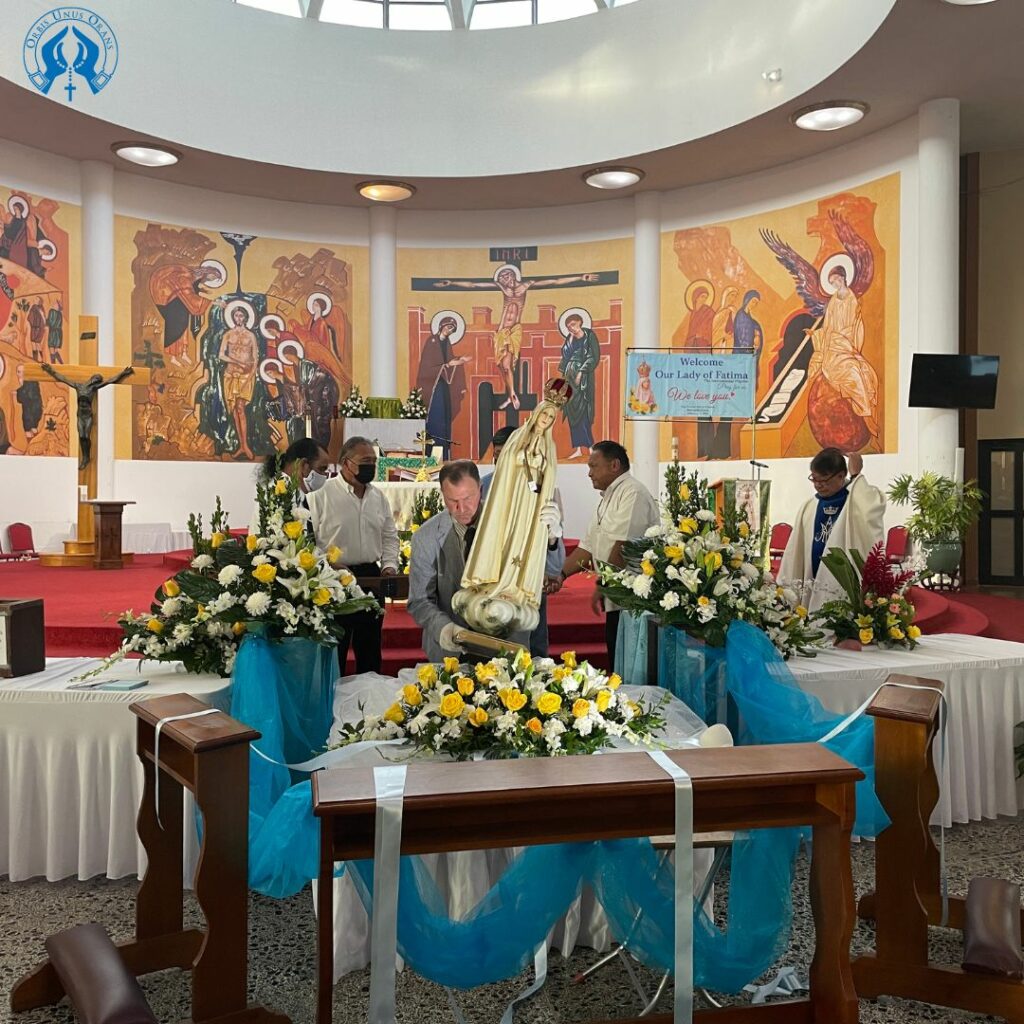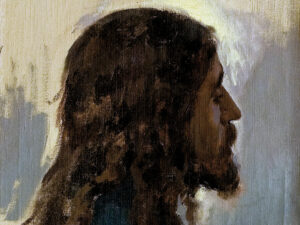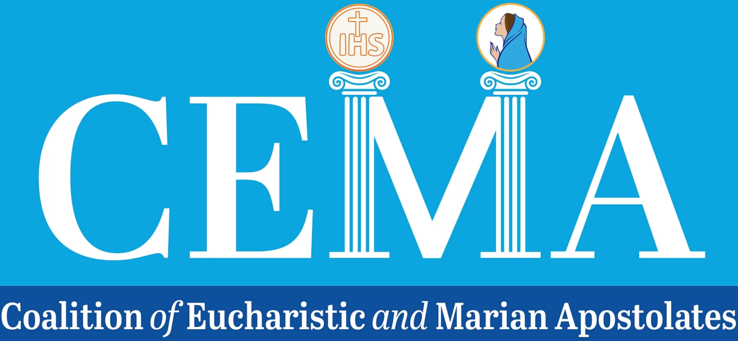by Donal Anthony Foley –

We are entering the “Fatima season,” May – October, related to the apparitions of Fatima in 1917. Thus, it is a good time to reflect on the requirements of our daily duty in the light of what Our Lady asked for, particularly in the very first apparition on May 13.
We have recently experienced the consecration to Our Lady’s Immaculate Heart made by Pope Francis in Rome, which had the specific intention of bringing about peace in Ukraine and the world, a theme so central to what the Blessed Virgin said at Fatima.
Bringing this conversion about, though, will require a much greater acceptance of the Fatima message in the Church as a whole, and a more zealous compliance with the Our Lady’s requests, especially regarding the First Saturdays devotion, the promotion of the Rosary and the spreading of devotion to her Immaculate Heart.
If we ask how do we, as individuals, play our part in all this, Sister Lucia gave the answer to John Haffert, co-founder of the Blue Army.
With the encouragement of Bishop Correia da Silva of the diocese of Leiria-Fatima, Haffert visited Sister Lucia in 1946, while she was still a Dorothean sister at the convent in Porto, Portugal. He opened the 4-hour conversation by saying that he knew the Rosary was the most important request of Our Lady at Fatima, but then asked what other things were necessary to fulfill Mary’s requests.
Sister Lucia surprised him by replying, “But the Rosary is not the most important request,” then quickly added that the essential request of Our Lady of Fatima was contained in the very first question she put to the children on May 13, 1917:
“Are you willing to offer yourselves to God and bear all the sufferings He wills to send you, as an act of reparation for the conversion of sinners?”
In his memoir Dear Bishop, on the history of the Blue Army, Haffert states that Sister Lucia repeatedly emphasized during the interview that it was the fulfillment of daily duty according to one’s state in life – and also a genuine effort at personal sanctification – which was the primary condition for bringing about the conversion of Russia and the promised time of peace.
At the same time, he tells us, Sister Lucia stressed that the Rosary is indeed important, because it is one of the principal aids given to us by Our Lady to facilitate the sanctification of our daily duty. The Fatima seer also strongly emphasized the Brown Scapular and consecration to the Immaculate Heart of Mary, as additional aids to the sanctification of daily duty.
She, likewise, highlighted the importance of the First Saturdays devotion, because it as an opportunity for us to renew our resolution, once a month, to do better in the future as regards to sanctifying our daily duty through the power of the sacraments and prayer, and with the intention of making reparation.
It could be said that everything in the Fatima message is designed to enable us to better fulfill our daily duty, and that this is the key to bringing about the promised period of peace, which we all await. Yet, we tend to overlook this important aspect of making everything a sacrifice – meaning, extending our Morning Offering throughout the day – and so we mostly don’t offer up our daily problems and sufferings.
For most people, it is an effort to get their morning prayers said before the rush of the day begins and, for many people, daily Mass – which is clearly the greatest prayer of all – is just not possible. Therefore, when some form of suffering crosses our path, it takes an effort to offer it up rather than become annoyed or upset.
Making everything a sacrifice can be done, but it takes time and effort and the establishment of a habit. It also takes a certain determination, much prayer and the grace to do this successfully. We need to ask God, through the Immaculate Heart, to give us the grace to sanctify our day, to make it holy, to become like the Blessed Virgin, who was completely obedient in doing the will of God. She wants us to follow the path of sanctification that she took while on earth.
If we ask what sanctification is and how it is connected with our daily duty, we can get some indications about this from one of Sister Lucia’s later works, Calls from the Message of Fatima. In this, she says, “We all have to work, to eat our bread by the sweat of the brow. It is a duty that no one can escape from, for the law of work applies to everyone, rich and poor, wise and foolish, superiors and subjects.”
On a more fundamental level, she says, “To adore God is a duty and a commandment imposed on us by God out of love, so that He can shower His blessings on us.”
Further, she adds, “It is our duty, in gratitude, in appreciation, in justice and equity, to love God above all things, to repay Love with love,” a love that must be “sincere, cheerful and self-sacrificing. …We should be ready to make sacrifices when this is required of us in order to fulfill our duty to God, to our neighbor and to ourselves.”
In her second memoir, Sister Lucia recounts what Christ said to her on this subject: “The sacrifice required of every person is the fulfillment of his duties in life and the observance of my Law. This is the penance that I now seek and require.”
She sums up her thoughts on this subject in the following way: “In order to attain salvation, it is not enough to do no wrong; we all also have a duty to practice virtue in doing good.”
So aiming at sanctification and doing our daily duty involve doing our daily work well and conscientiously, while not forgetting our primary duty is to God, to love Him above all things, while at the same time both remembering to make sacrifices and also striving to live a virtuous life.
If we do these things and live a life genuinely consecrated to the Immaculate Heart of Mary, then we can certainly fulfill our daily duty. And when enough people in the world are doing this, we will see the triumph of her Immaculate Heart.
Donal Anthony Foley is the author of a number of books on Marian Apparitions and maintains a related web site at www.theotokos.org.uk. He is a frequent contributor to our Fatima blog and Soul Magazine.











